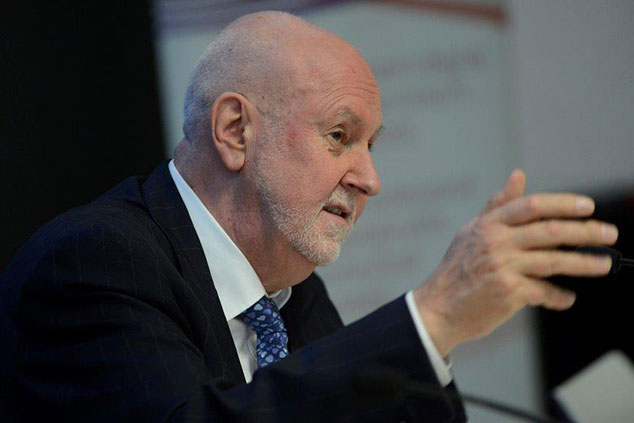
If leaving the European Union and reverting to World Trade Organisation tariffs represents the hardest of hard Brexits, then being part of the European Economic Area (EEA) on the European Free Trade Association (EFTA) side represents a “soft Brexit”. Last week, I went to a roundtable at the House of Commons that looked at this option.
As well as several politicians, one of the panellists was Professor Carl Baudenbacher. A top international jurist and legal academic, Swiss-born Baudenbacher is a senior judge (and long-time former president) of the EFTA Court, the main legal interface between EEA members Iceland, Lichtenstein and Norway, and the EU.
Perhaps the biggest criticism of EEA membership is that Britain would lose its ability to directly vote on EU rules, but would still have to obey them. While EEA membership would undoubtedly diminish Britain’s direct influence, Baudenbacher strongly disagrees that Britain would just become a passive “rule-taker”. This is because EEA members are consulted on new rules as part of the “two-step” decision-making process.
While some Norwegian pundits constantly like to talk this system down, Baudenbacher thinks that this reflects their desire for Norway to become a EU member, and that, in reality, “the arrangement has actually worked quite well”.
Baudenbacher also argues that it’s important to not place too much emphasis on the importance of a vote. Since “most EU policymaking is conducted by consensus”, the loss of formal voting rights is less important than being present in the key rooms and committees when the proposals are being drawn up, something that EEA membership would largely preserve. In any case, if Britain was really serious about going down the EEA route, then the degree of input that it could have into rulemaking “could be up for negotiation”.
Even if EEA membership reduced Britain’s ability to craft EU laws, going down the EEA route would still radically reduce the number of European rules that we would have to follow. Indeed, the whole idea of the EEA is that “it just covers trade without any political integration”, which means that we would be able to ditch those laws that didn’t relate to the single market. This includes the common foreign policy, the common agricultural policy and the fisheries agreements. If we took full advantage of our new freedoms, experts estimate that we could tear up nearly 70% of the EU rulebook overnight.
One of the government’s red lines is that Britain must leave the jurisdiction of the European Court of Justice (ECJ). Unsurprisingly Baudenbacher is keen to stress that the EFTA Court is a separate body and that it does not act as a rubber stamp, instead considering each case on its merits.
For example, in 2013, it ruled that the Icelandic government was not required to compensate Britain and the Netherlands for bailing out bank Icesave’s depositors. Its equal status is shown by the fact that its judgements have been cited on many occasions by the ECJ in its rulings. It is also noticeably more pro-market than its counterpart in Brussels, “as we think that market-inspired solutions are the best”.
Of course, EEA membership is dependent on Britain accepting continuing freedom of movement of persons. Since he is a judge, rather than a politician, Baudenbacher “doesn’t want to be drawn” on how flexible the EU is willing to be about the practice as opposed to the principle.
While the Swiss and the EU managed to find a compromise that involved minor changes to how it operated, he notes that the overall Swiss-EU arrangement (which involves bilateral treaties enforced by diplomats) is not something that Brussels is particularly keen on. Indeed, the EU is putting pressure on the Swiss to join either the ECJ or the EFTA Court mechanism.
Naturally, all this speculation is irrelevant if the three EEA countries don’t agree to let the UK join their body. While some Norwegian politicians have expressed reluctance, again possibly due to their desire to push for full EU membership, their diplomats “have strongly hinted that they would seriously consider British membership”.
At the same time, “there have been several statements from the Icelandic government that they would welcome the UK”. Overall, the only serious barrier seems to be that Theresa May has repeatedly ruled this option out. As Baudenbacher puts it, “as the UK has never asked, it is unrealistic to expect the EEA/EFTA states to invite them”.